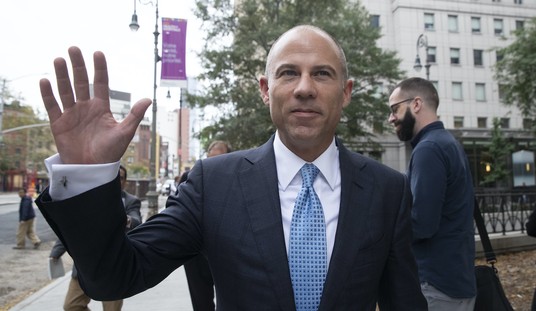Nick Walsh of CNN says it’s time to admit the Taliban is winning in Afghanistan. It’s an observation that would surprise people who remember Obama’s first term, when the administration, to use a basketball metaphor, was leading by 40 points going into the last quarter with no way it could lose. No one would have expected the enemy to come from behind, take the lead and likely take home the trophy.
But there it is. If there’s one word that news stories have overused in the last half decade, it’s unexpected. Surprises keep popping up. For example, the Washington Post writes that President Obama, who came to office amidst near universal adulation and widely praised for being inspiring and likeable, has surprisingly few friends among world leaders.
In recent months, he has offended most of the United States’ Persian Gulf allies. “All I need in the Middle East is a few smart autocrats,” he joked privately, according to a recent profile in the Atlantic magazine. Publicly, he has said he “weeps” for Saudi and Kuwaiti children.
The United States’ European allies, he complains, have grown too dependent on American firepower to keep them safe.
Even the United Kingdom, a U.S. “special” partner, has received criticism. Obama seemed to blame the postwar chaos in Libya on British Prime Minister David Cameron, who he said “became distracted by other things” and didn’t do enough to bring order to the fractious country.
That surprise unpopularity is sometimes explained by the fact that he is too cerebral. But even coarse interactions don’t play out as expected. The Washington Times notes Obama was clipped by Havana and got nothing from Castro despite all the money he showered on the old Communist. Iran, whose coffers the president filled with billions of dollars, has demonstrated a shocking lack of gratitude. The president is reportedly trying to coax the ayatollahs into a meeting by offering them terms that would be familiar to any television pitchman: a deal good for a limited time only.
President Barack Obama has sent two letters to senior Iranian leaders in recent months requesting a meeting with Iranian President Hassan Rouhani, according to Persian language reports recently translated by a Middle East research organization….
Obama purportedly wrote in the correspondence “that Iran has a limited-time opportunity to cooperate with the U.S. in order to resolve the problems in Syria, Iraq, and Yemen, and promised that if Iran agreed to a meeting between him and Rouhani, he would be willing to participate in any conference to this end,” according to MEMRI’s translation of the report.
Old allies, some would say client-states, have been surly lately. CNN reported the Saudis unexpectedly snubbed Obama at the airport, sending the mayor of Riyadh to greet the president because King Salman, who had been at the airport earlier to greet other Gulf rulers, had already gone home. If any slight was intended, it was studiously unacknowledged because as Michael Pregent in Foreign Policy argued Obama needed Saudi Arabia to keep a lid on the wave of terror boiling out of the region.
While the public might not regard Saudi Arabia as a great ally, Pregent pointed that in MENA “friends” means not really bad enemies.
How many terror plots has Iran helped the U.S. thwart? None. Did Iran stop Syrian dictator Bashar al-Assad from facilitating the flow of al Qaeda fighters into Iraq to kill American soldiers there? Of course not. Instead, Iran’s leaders continue to direct attacks against U.S. interests, resulting in the deaths and maiming of American soldiers.
In that context the Kingdom is a friend. The only way the president can still look statesmanlike is to set the bar as low as possible. Obama recently appealed to Vladimir Putin to restrain Assad from destroying his Syrian allies and the ceasefire, an act which the New York Times described in this way: “in a strongly worded statement, the White House said that Mr. Obama had urged Mr. Putin to use his influence with President Bashar al-Assad of Syria to press him to stop attacks against opposition forces and abide by his commitment to a partial cease-fire.”
The editorial board of the Washington Post is less polite than the Gray Lady. It calls the ceasefire a sham whose only virtue is being better than nothing. “The Syrian cease-fire has achieved diplomatic zombie status: It is dead but lives on in the otherworldly rhetoric of its promoters, headed by the Obama administration. … In Geneva, the head of the opposition’s delegation said it would not return to U.N.-sponsored peace talks until the government stopped its attacks and allowed aid convoys to enter besieged areas.” Maybe a special, time-limited offer can lure the rebels back to the table.
Obama’s vertiginous fall should elicit no schadenfreude even among those who dislike him. The American prestige which kept the Long Peace has declined along with his fortunes affecting not only him but everyone else. Wolves who for so long kept a distance will, in their boldness, narrow the circle and slink ever closer to what was formerly safe.
Although the punditry seems constantly surprised by the turn of events, the average Joe has probably felt the malaise coming on for a long time. Public health researchers reported that the life expectancy of white, non-Hispanic females has declined for the first time in many years. They are dying from drugs, suicide and diseases related to heavy drinking and smoking — in a word, from anxiety and worry.
At one level, the anxiety is easy to explain. Intel has laid off 11% of its workforce, HP has laid off 30,000 people and IBM’s sales have fallen by 22% in the last year. Nathan Bomey of USA Today recently wrote an obituary for the Appalachian coal industry. “The crushing forces prevailing against the U.S. coal industry have triggered an unprecedented shakeout, sparking bankruptcies of the industry’s biggest players — such as last week’s collapse of Peabody Energy — and battering jobs in Appalachia.”
But it’s not just unemployment that’s niggling at people. On another level, worry springs from the suspicion that we don’t even know what we want. Only last month, Jedediah Purdy in the Atlantic seemed glad coal was finally dead because “mining a century’s worth of energy means ruining a landscape for millions of years.” Yet the Salt Lake Tribune could bemoan the fact “global warming has mostly made the weather more pleasant for Americans during the past 40 years” because it lulled the public into complacency. The City Journal captures the dilemma noting that Chicago’s doubled murder rate has put social justice warriors in a Catch-22. “Will the anti-cop Left please figure out what it wants? For more than a decade, activists have demanded the end of proactive policing, claiming that it was racist. Pedestrian stops—otherwise known as stop, question, and frisk—were attacked as a bigoted oppression of minority communities.”
Is losing your job a feature or a bug? It’s like society can’t figure out what it wants or even explain what’s going on. So people grab another smoke, joint or six-pack until the dust settles. And it never settles. At least Bomey used the words “unprecedented” instead of “unexpected” to describe the end of the coal. That term better captures the sense of the familiar being shattered by something inexplicable.
“Unprecedented” is when things that never happened before begin to happen all the time. “Unexpected” is when leaders swear they never saw the truck that hit them coming. The difference is this: when the Secret Service can hemorrhage personnel and lose agents faster than it can replace them, that’s unprecedented. When “faulty radios, poor training, and ongoing construction” keeps agents from stopping a man making “it all the way inside the presidential residence in 2014,” that’s unprecedented. When Hillary Clinton says she never anticipated an attack on the Benghazi consulate in a country the administration had freed from Khadaffy, that’s unexpected.
What may really be bothering the public is not the extent of challenges before them, but the sense of disjointedness in the narrative that politicians and the media convey. There’s something altogether odd about a world where the president of the United States is treated in a pointedly rude manner by Saudi Arabia, yet public attention stays focused on states which have committed the offense of establishing men and women’s bathrooms. There is something peculiar, at a time when ordinary people are losing their jobs, when an ESPN sports analyst can be fired for Tweeting “Let him in! to the restroom with your daughter or else you’re a narrow minded, judgmental, unloving, racist bigot who needs to die!!!”
So what? Well Tweeting’s a serious offense, don’t you know? It’s all predictable yet completely baffling. To return to the initial paragraph, how can President Obama blow a 40-point lead in Afghanistan and lose to the Taliban after billions of dollars and thousands of lives yet have the whole thing languish in the inner pages? It’s almost as if the angles in the room don’t add up and everyone regards it as the most natural thing in the world. Are we missing something? That feeling’s the source of the malaise — and not just the “unexpectedly”.
Follow Wretchard on Twitter.
Recently purchased by readers:
The Life-Changing Magic of Tidying Up: The Japanese Art of Decluttering and Organizing, This best-selling guide to decluttering your home from Japanese cleaning consultant Marie Kondo takes readers step-by-step through her revolutionary KonMari Method for simplifying, organizing, and storing, which promises that if you properly simplify and organize your home once, you’ll never have to do it again.
The Girls in the Band Collector’s Edition, Directed by Judy Chaikin, this documentary tells the poignant untold stories of female jazz and big band instrumentalists from the late 1930s to the present day. The women profiled include trumpeter Clora Bryant, saxophonist Peggy Gilbert and Billie Rogers, a trumpeter in Woody Herman’s band. Also appearing are such acclaimed modern-day musicians as Herbie Hancock, Esperanza Spalding, Geri Allen, Anat Cohen, Jane Ira Bloom and Terry Lynne Carrington.
Tom Petty and the Heartbreakers: Runnin’ Down a Dream (Limited Edition), Directed by Peter Bogdanovich. 4 Disc Limited Edition Set – CD & DVD Box Set.
Recommended:
SOG: The Secret Wars of America’s Commandos in Vietnam, Code-named the Studies and Observations Group, SOG was the most secret elite U.S. military unit to serve in the Vietnam War, composed entirely of volunteers from such ace fighting units as the Army Green Berets, Air Force Air Commandos, and Navy SEALs. This book by John L. Plaster, a three-tour SOG veteran, is a gripping account of SOG’s operations behind enemy lines — penetrating heavily-defended North Vietnamese military facilities, holding off mass enemy attacks, and launching daring missions to rescue downed U.S. pilots.
Did you know that you can purchase some of these books and pamphlets by Richard Fernandez and share them with your friends? They will receive a link in their email and it will automatically give them access to a Kindle reader on their smartphone, computer or even as a web-readable document.
The War of the Words, Understanding the crisis of the early 21st century in terms of information corruption in the financial, security and political spheres
Rebranding Christianity, or why the truth shall make you free
The Three Conjectures, reflections on terrorism and the nuclear age
Storming the Castle, why government should get small
No Way In at Amazon Kindle. Fiction. A flight into peril, flashbacks to underground action.
Storm Over the South China Sea, how China is restarting history in the Pacific
Tip Jar or Subscribe or Unsubscribe to the Belmont Club









Join the conversation as a VIP Member